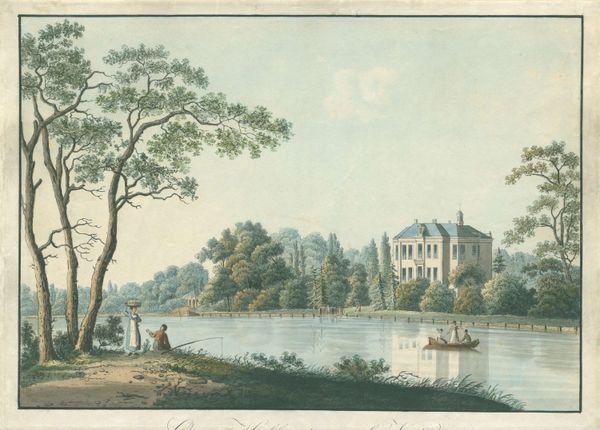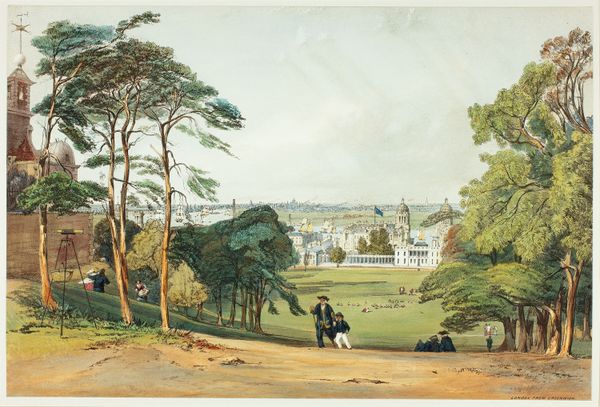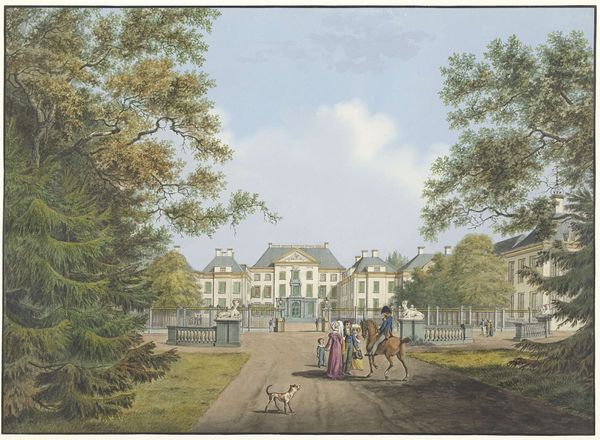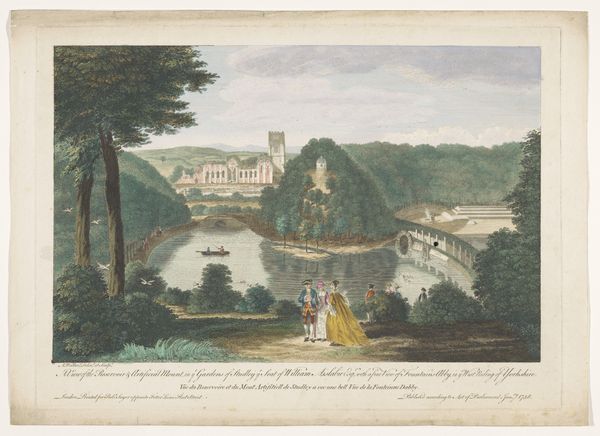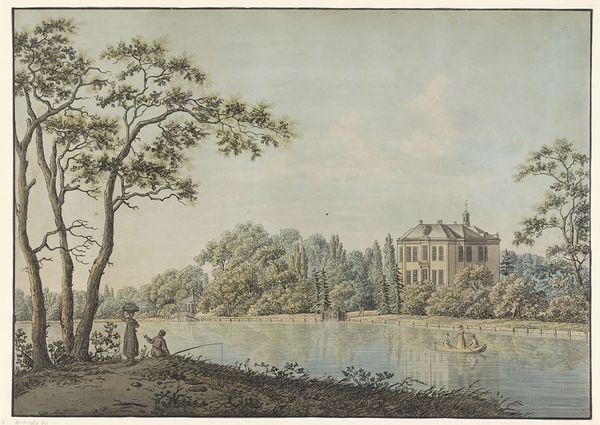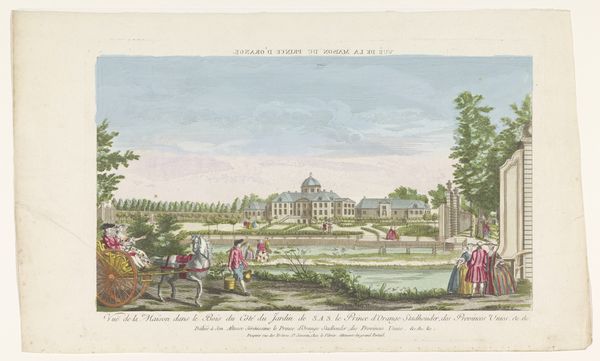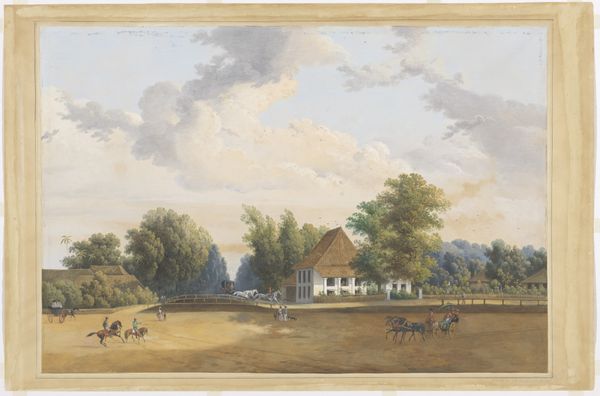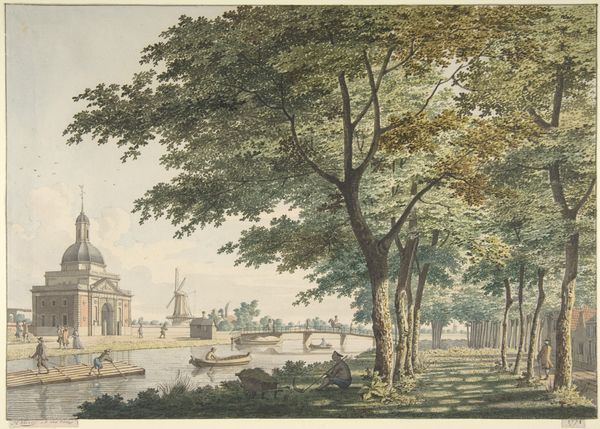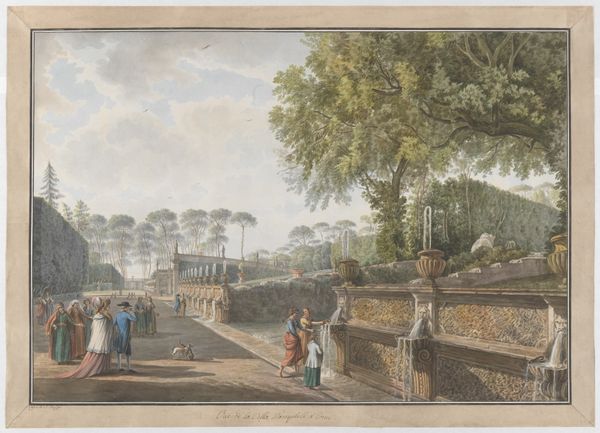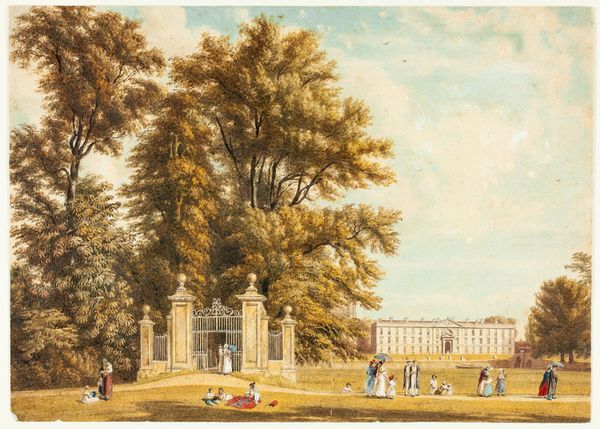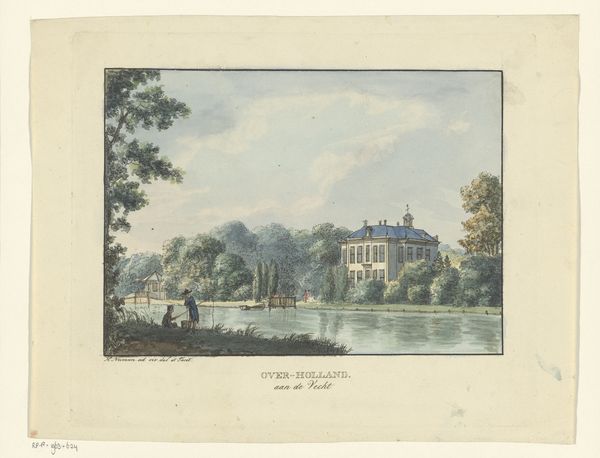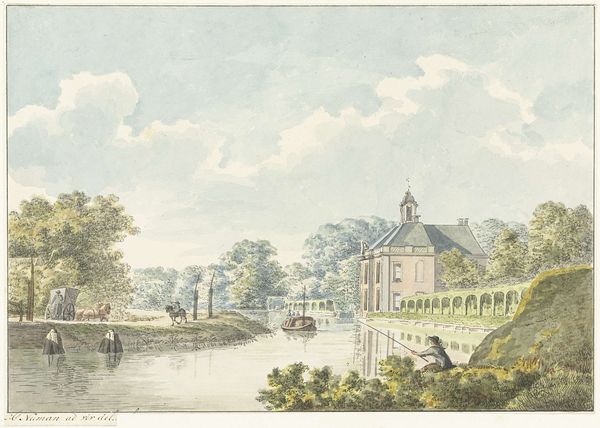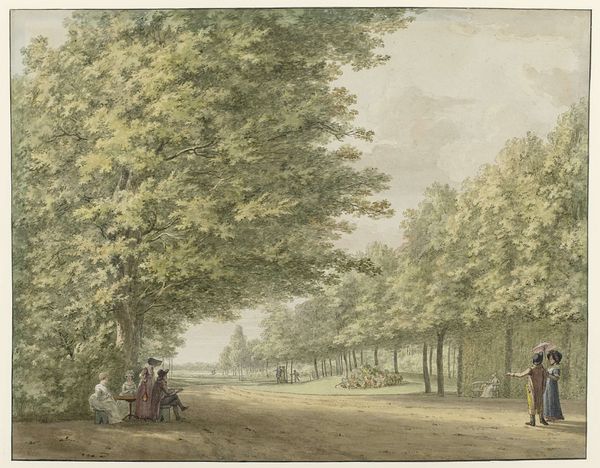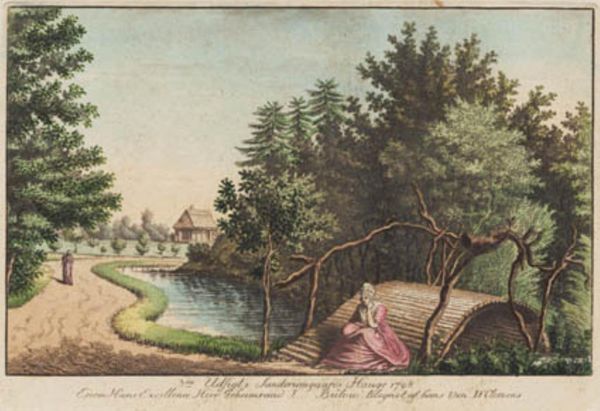
painting, plein-air, watercolor
#
neoclacissism
#
painting
#
plein-air
#
landscape
#
watercolor
#
romanticism
#
cityscape
#
genre-painting
#
history-painting
#
botanical art
#
natural environment
Dimensions: height 419 mm, width 574 mm
Copyright: Rijks Museum: Open Domain
Editor: Here we have Cornelis de Kruyff's watercolor painting "Gezicht op paleis Soestdijk," made sometime between 1784 and 1828. It feels very serene, almost staged, with this family strolling alongside the water. What strikes you about it? Curator: What immediately grabs my attention is the artist’s focus on portraying Soestdijk Palace not just as a building, but as a symbol of power and order within a shifting socio-political landscape. Look how the family adds to that picture – carefully positioned, don’t you think, within this idealized, controlled natural environment? Does it perhaps evoke a certain societal expectation? Editor: Yes, it's like they're part of the manicured landscape, a perfect little scene. But the inclusion of the common people kind of softens it for me; what do you think that says about its purpose as a history painting? Curator: Precisely! This painting emerges during a period of significant political and social upheaval, particularly with the rise of revolutionary ideas challenging existing power structures. The inclusion of ordinary figures within the landscape served to negotiate potentially turbulent sentiments and to reassure citizens of the accessibility of royal authority; also showing this "order" by aligning everyday life with a sense of controlled elegance. Editor: That's fascinating! So, the painting isn’t just a pretty picture, it's actively shaping public perception. It’s interesting how it uses those softer, gentler features as powerful propaganda tools. Curator: Absolutely! It's a carefully crafted image intended to communicate specific values about the relationship between the monarchy, the people, and the land. It’s this very blend of idyllic beauty and potent messaging that exemplifies the political functions of art in the period, don’t you agree? Editor: Definitely! I never would have considered the socio-political elements without your expertise! Curator: And I'm reminded of how crucial art is as an archive to that political discourse and public image! Thank you!
Comments
No comments
Be the first to comment and join the conversation on the ultimate creative platform.
